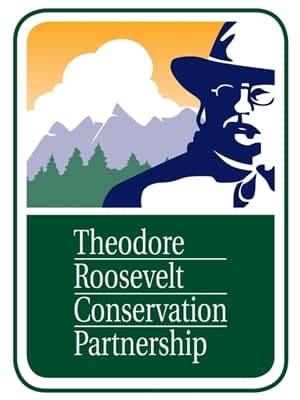Gulf Anglers Release List of Priorities for Oil Spill Funds

Fisheries conservation and management, expanded public access, restoration of Gulf Coast economies rank high on list of key sportfishing projects.
A “wish list” of 25 fisheries projects in the five Gulf of Mexico states represents angler priorities that would restore, sustain and enhance Gulf sportfishing and economies, stated the Theodore Roosevelt Conservation Partnership, which released the document today at its annual Saltwater Media Summit.
The TRCP, which developed the project list based on feedback from Gulf anglers and with the support of its partners, urged state and federal agencies presently engaged in identifying and implementing recovery efforts from the 2010 Deepwater Horizon oil spill to commit to funding these initiatives. They include a host of activities that would enhance and restore habitat; improve fisheries science, management, monitoring and data; increase survival rates of reef fish that have been caught and released; and expand access to quality fishing opportunities.
“The various efforts to restore the Gulf of Mexico in the wake of the 2010 Deepwater Horizon oil spill represent an unprecedented opportunity – not only to repair the damage from the spill but also to address long-standing habitat loss and deficiencies in fisheries science, management and access to the resource,” said TRCP Center for Marine Fisheries Director Chris Macaluso. “The Gulf recreational fishing community is dedicated to ensuring that local, federal and state decision makers prioritize quality habitat, better science and management, and sustainable access to great fishing as restoration of these iconic natural resources continues.”
Specific projects were identified by the TRCP after extensive discussions with anglers, angling and conservation groups, business owners, fisheries and habitat managers, biologists and research institutions across the Gulf. They include the following:
- a Gulf-wide education outreach effort to reduce barotrauma on fish caught and released in deep water in all five states,
- increased fish tagging efforts using acoustic and telemetry tags across the Gulf,
- expansion of oyster reefs and other natural and artificial reef structures in each state,
- restoration of barrier islands and other smaller interior islands in Alabama and Louisiana,
- improvement of fishing infrastructure such as docks, piers and boat launches in Louisiana and
- improved water quality and hydrology throughout the Gulf.
All of the targeted projects overlap with broader recommendations made by the TRCP, American Sportfishing Association, Coastal Conservation Association and others in the report “Gulf of Mexico Recreational Fisheries: Recommendations for Restoration, Recovery and Sustainability.” In 2013, the TRCP worked with recreational fishermen, state and federal management agencies, scientists and conservation groups across the Gulf to conduct a series of workshops to identify the priorities listed in the report.
“CCA Louisiana has invested millions of dollars and thousands of volunteer hours into building reefs, restoring marshes and improving fishing facilities across Louisiana’s coast,” said Coastal Conservation Association Louisiana Executive Director David Cresson. “The projects in this list help further those efforts and other vital programs and projects needed to make sure we have good habitat, better water quality and sustainable fishing, both in Louisiana and Gulf-wide, for decades to come.”
More than 3.5 million anglers fish the Gulf of Mexico every year, and the economic impacts of sportfishing in the Gulf are substantial. Recreational fishing and fishing-dependent businesses generate $10.3 billion in economic activity and $1.3 billion in federal, state and local tax revenues annually and support nearly 100,000 jobs in the region, according to the American Sportfishing Association.
“Restoring vital habitat like oyster reefs and coastal marshes will help ensure the long-term sustainability of fish and the recreational fishing community throughout the Gulf,” said Bob Bendick, Gulf of Mexico program director for The Nature Conservancy. “This is a priority for the entire Gulf Coast community.”
Review a state-by-state breakdown of priority projects identified by Gulf anglers.
Contact
Katie McKalip, 406-240-9262, kmckalip@trcp.org

